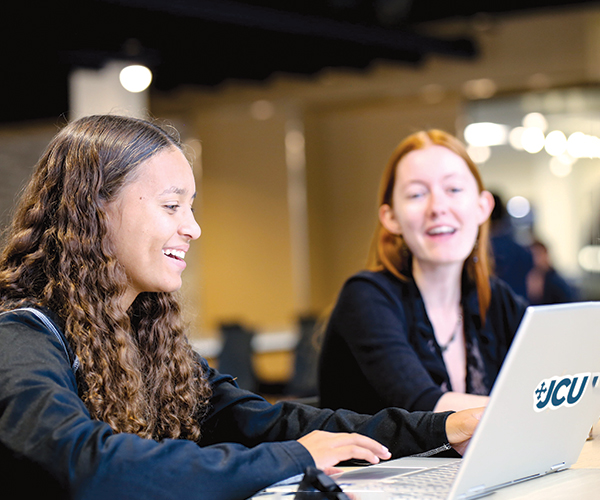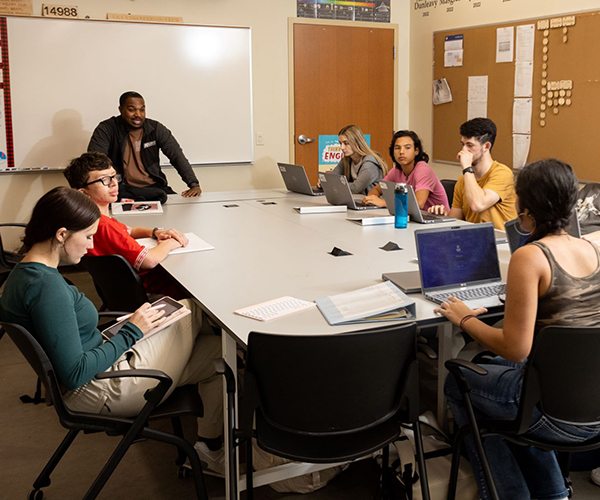Read This ... and This, and This, AND THIS
Are you ready to tackle the reading list your English Lit professor just handed out?
by Claudia Lilie | Sep. 28, 2006 | 4:00 AM
In fact, many colleges recommend that students spend at least twice as much time studying and preparing for class as they do in the classroom. So 15 hours of class time would mean more than 30 hours of outside work.
Many are overwhelmed at the amount of material covered in just the first four weeks of the term. It’s not unusual for professors to assign 70 pages of reading each time a class meets. College-level courses typically have two to four exams, which will be based on 200 to 400 pages of reading in addition to the lecture material. It’s easy to see how the study time starts to add up.
But it also pays off. According to a 2001 University of Virginia research report that tracked its Class of 1999, there was a direct correlation between study time and grade point average — regardless of SAT scores. Students who studied less than 10 hours per week carried an average GPA of 2.96 compared to 3.14 for students who studied 10 to 19 hours per week and 3.19 GPA for 20 or more hours.
Will you spend this much time studying each week? Probably not. Requirements will vary over the term. But at least two times your course load is a good rule of thumb.
So how can you prepare for what you’re about to face?
Start improving your study habits now.
The first step is simply an attitude adjustment. When you’re faced with a challenging assignment, do you groan and think about how much you hate the class? Do you thumb through the pages and think you’ll never finish? Instead, think positively. Tell yourself you can do it. It’s all about focus. If you find your mind wandering from the assigned pages, break up the reading into two or three sections. If you approach the material with a focused, positive attitude, you’re more likely to remember what you read.
It can take four to six weeks to make a lifestyle change a habit. Here are six strategies to get you set for college reading and assignments. Add one each week and they’ll soon become a natural part of your study habits. After six weeks, you’ll be prepared to tackle those college reading lists.
1. Be an active reader. Do something with the information you read. Take notes. Look for the main idea. Spend time defining the vocabulary. Use mnemonics to help you memorize key information. Or just take a moment to reflect on what you read and how the concepts apply to your life or the world around you. Make the information meaningful to you — especially if it doesn’t seem (at first glance) as if it applies to your life. Information that is not used is more likely to be forgotten as soon as you close the book. Doing something with the information will help you transfer it to your long-term memory.
2. Warm up your brain before reading. When you first open the book, scan the pages. Take 60 seconds to look at the number of pages you need to read. Does the reading include graphs or pictures? Are any of the words in boldface? What are the headings? Treat your mind like a muscle. You would not play football or run a marathon without first warming up. In the same way, you need to prepare your mind to read and think about what you’re learning.
3. Ask yourself what you already know about the subject. The more you know about what you are reading, the easier it is to understand.
4. Ask the author questions. Think about what the author is saying. Why is he or she telling you this? How could he or she say it better? How would you say it better? Think of yourself as an editor. How could you make the text easier to understand? Look for important information and restate it in your own words. That editing work will help you make sense of the subject.
5. Take time to review. Don’t slam the book shut and go on to something else as soon as you finish reading. Recite key information out loud. Answer any questions you thought about while reading. Transfer this knowledge to your memory. This will help you avoid that feeling of forgetting what you just spent 30 minutes reading.
6. Reward yourself for 20 to 30 minutes. If you have completed the assignment and you remember what you have read, take a break. Do something you enjoy. Play a video game, watch TV or IM a friend. You’ve earned a bit of fun. Just don’t forget to go back to any homework you still need to finish.
Lilie teaches reading and study strategies part time at Kent State University.
Trending
-
1
-
2
-
3
-
4
-
5










